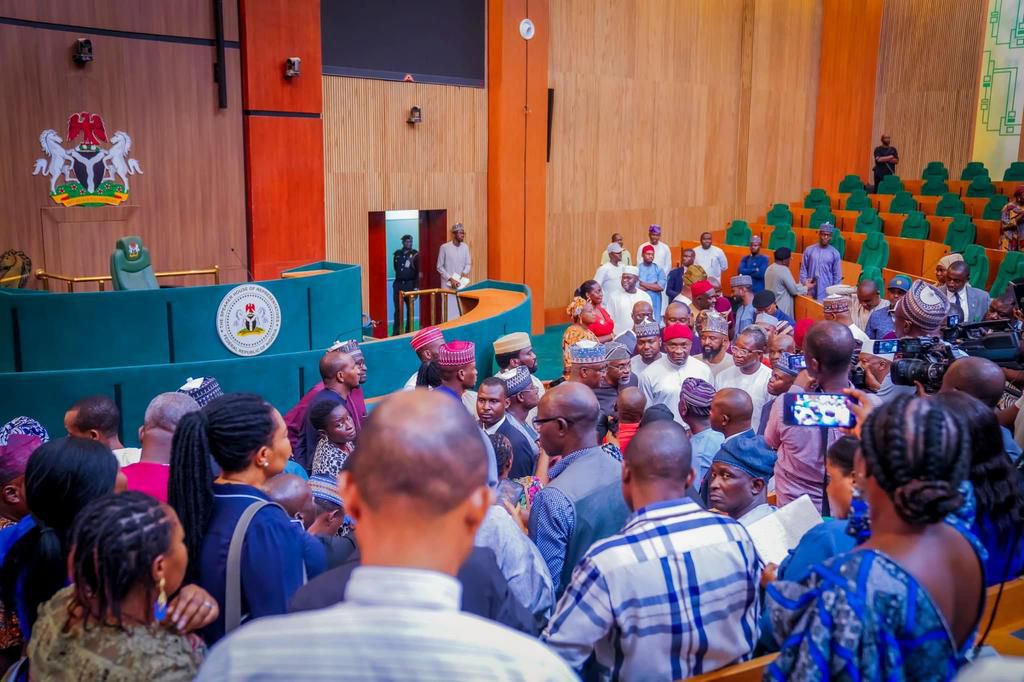Reps prove $347m loan for Lagos-Calabar Highway, others amid debt concerns

```html Reps Approve $347 Million Loan for Lagos-Calabar Highway and Telecom Expansion Amid Debt Concerns The House of Representatives has approved President Bola Tinubu's request to borrow an additional $347 million under the 2025-2026 borrowing plan. The funds are earmarked for the Lagos-Calabar Coastal Highway project and the Nigerian Universal Communications Access Project, a major telecommunications expansion initiative.
Breakdown of the Approved Loan Speaker Tajudeen Abbas presented President Tinubu's request during Wednesday's plenary session. Deputy Speaker Benjamin Kalu subsequently granted final approval. The loan request details a $47 million increase for the Lagos-Calabar Coastal Highway, citing a shortfall in the initially committed $700 million financing by lenders. According to President Tinubu's letter to the House, the increased financing is essential to align with the loan size agreed upon in the finance documents. The remaining $300 million is designated for the Nigerian Universal Communications Access Project, aiming to deploy 7,000 telecom towers in remote rural communities to improve digital access.
Impact on Nigeria's Debt Profile This latest approval marginally increases Nigeria's total foreign borrowing plan from $21.54 billion to $21.89 billion, as initially proposed by the President in May. The initial proposal also included €2.19 billion, ¥15 billion, and a €65 million grant. Chairman of the House Committee on Aids, Loans, and Debt Management, Abubakar Nalaraba, defended the increased borrowing. He stated that Nigeria's debt-to-GDP ratio, currently around 50%, remains within the international threshold of 56%. Nalaraba also highlighted the administration's efforts to decrease the debt service-to-revenue ratio from over 90% to below 70%, projecting enhanced debt serviceability through revenue increases under the Nigerian Tax Act 2025.
Expert Analysis: Balancing Infrastructure Development and Debt Sustainability Dr. Folasade Odubajo, an economist at the Nigerian Economic Summit Group (NESG), commented on the loan approval, stating, "While infrastructure development is crucial for economic growth, the government must exercise caution in accumulating debt. A comprehensive debt sustainability analysis is essential to ensure that the projects financed by these loans generate sufficient returns to service the debt without jeopardizing the nation's fiscal stability."
Historical Context and Current Concerns Nigeria's history with foreign loans is complex. In the past, mismanagement and corruption have hindered the effective utilization of borrowed funds, leading to debt crises. The current administration's commitment to transparency and accountability will be crucial in ensuring that these new loans are used efficiently and effectively. Public concern regarding the rising debt profile remains a significant issue. Civil society organizations and economic analysts have repeatedly called for greater transparency in the borrowing process and more rigorous project appraisal to ensure value for money. The approval of this loan has reignited these concerns, with many questioning the long-term implications for Nigeria's economic stability.
Telecommunications Expansion: A Critical Need The allocation of $300 million towards the Nigerian Universal Communications Access Project is seen as a positive step towards bridging the digital divide. Access to telecommunications infrastructure is vital for economic empowerment, education, and social inclusion, particularly in remote rural communities. This project has the potential to unlock significant economic opportunities and improve the quality of life for millions of Nigerians.
Looking Ahead The effective implementation of both the Lagos-Calabar Coastal Highway and the Nigerian Universal Communications Access Project will be critical in justifying the additional borrowing. Strong oversight mechanisms, transparent procurement processes, and rigorous monitoring of project progress will be essential to ensure that these projects deliver the intended benefits and contribute to sustainable economic growth. Professor Adebayo Olukoshi, a political scientist at the University of Lagos, notes, "The success of these projects hinges on good governance and the ability of the government to create an enabling environment for private sector participation. The government must also prioritize skills development and technology transfer to ensure that Nigerians are equipped to benefit from these investments." ```
Originally sourced from: pulse Ng
